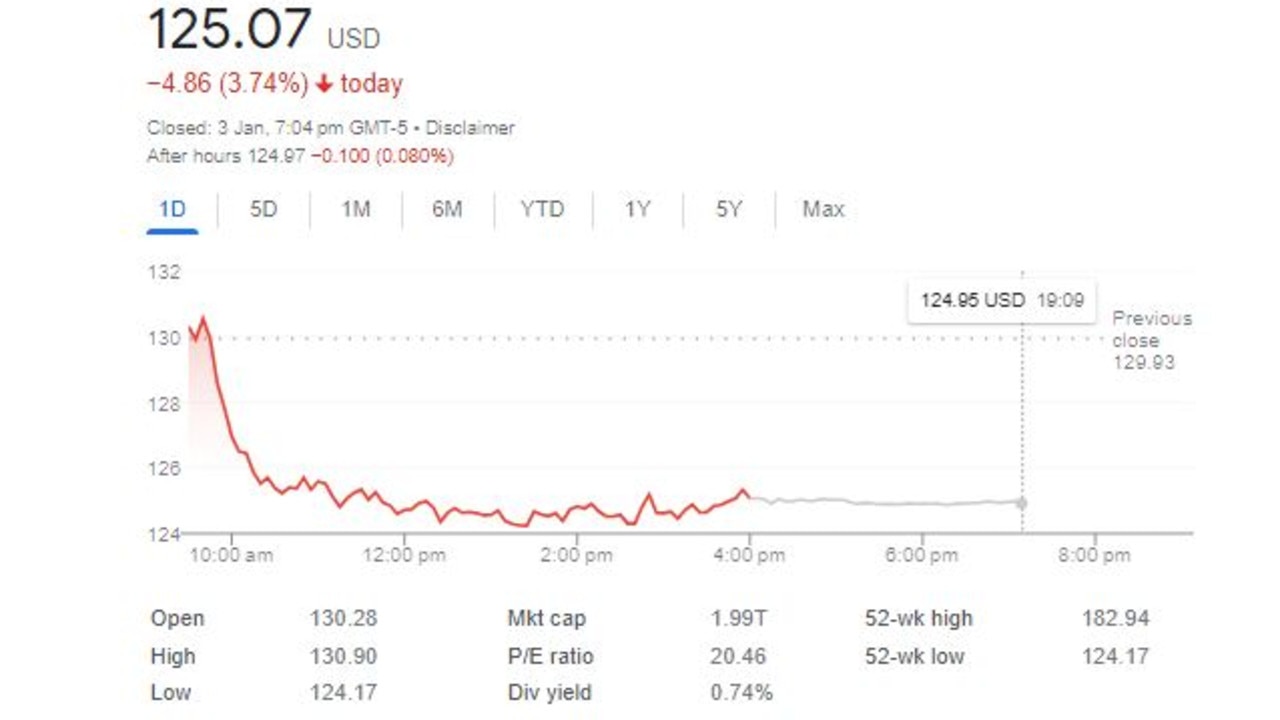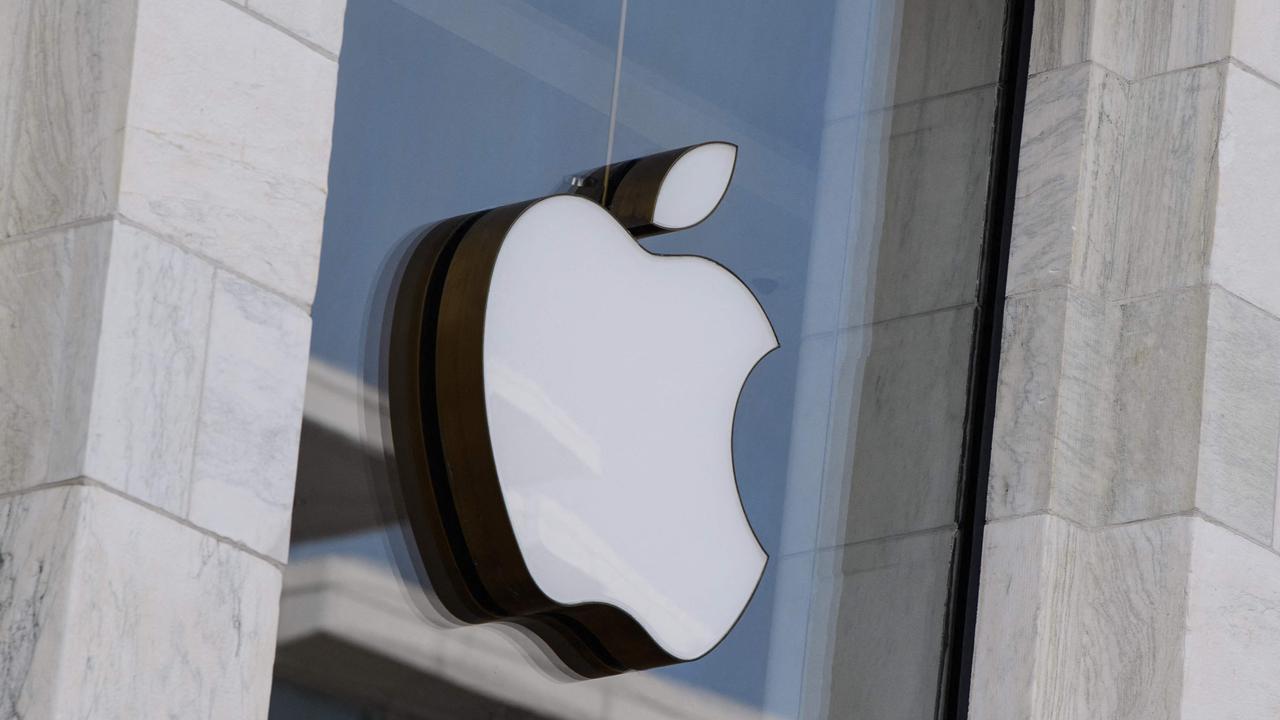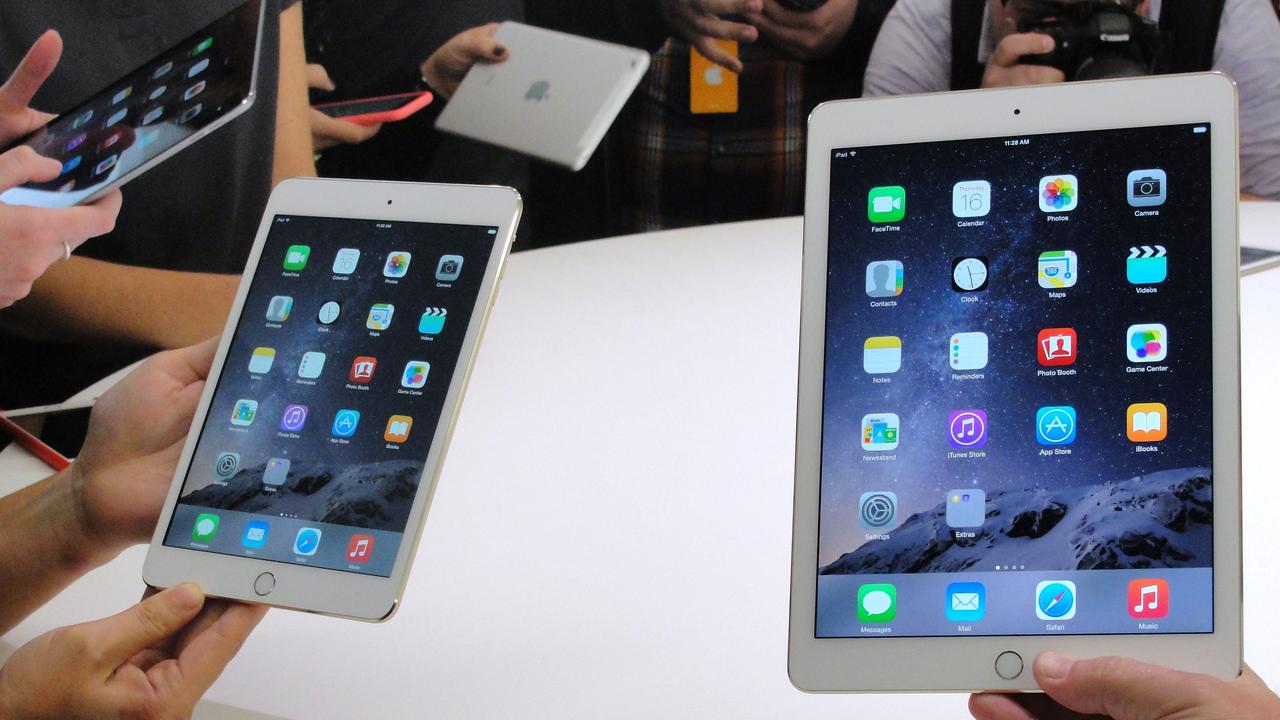Tech giant Apple loses $1 trillion in market value in just one year
The tech juggernaut has just joined a sad club nobody wants to be part of after losing a mind-blowing amount of cash in just one year.
Just one year ago, Apple was riding high, celebrating becoming the first US firm to reach a market value of $3 trillion.
But it’s a very different story 12 months later, with Apple shares plunging by more than 4 per cent on Tuesday, and the tech juggernaut going into 2023 with a market value below $2 trillion for the first time since early 2021.
It means the company saw a staggering $1 trillion wiped out in just one year, joining Amazon which became the first public company to ever lose more than $1 trillion in value in November 2022.
This week’s share price plunge came after a report from Nikkei Asia sparked concerns about demand for Apple items.
Stream more finance news live & on demand with Flash. 25+ news channels in 1 place. New to Flash? Try 1 month free. Offer available for a limited time only >

According to the report, Apple allegedly contacted suppliers to request they build fewer parts for certain best-selling products such as AirPods, Apple Watch and MacBooks.
Recently, investors have also been worried about Apple’s capacity to keep up with demand for some items after China’s Covid lockdowns and policy uncertainty wreaked havoc with production and supply chains.
When markets closed on Tuesday, Apple shares were worth just $US125 ($A185), a sharp drop from the $US182.94 ($A270.40) it enjoyed exactly one year ago.
Apple is certainly not alone, with fellow tech giants also being hit by economic and supply chain hassles, with Amazon and Meta also suffering a share price bloodbath recently.
However, Apple has repeatedly made headlines in recent months for all the wrong reasons, with the stock news just the latest in a string of headaches for the firm.
Late last year, an insider claimed Apple was set to face a staggering shortfall of six million iPhone Pros – its most popular product – as a result of spiralling Covid lockdown chaos in China.
Foxconn, Apple’s main subcontractor, locked down its huge factory in Zhengzhou in October as a result of surging Covid cases, in line with China’s former zero-Covid policy.

In the weeks that followed, the factory – which is the world’s largest producer of iPhones, and is widely known as “iPhone City” with a workforce of 200,000 – was also hit by further mayhem after violent protests broke out over the lockdown, pay and living conditions, which saw employees clashing with security at the plant.
In November, Apple confirmed the ongoing turmoil had “temporarily impacted” production ahead of the crucial Christmas holiday shopping season, and warned of delays ahead.
Dan Ives, an analyst at Wedbush Securities, told AFP late last year that the Apple disaster was causing the company to haemorrhage cash.
“Every week of this shutdown and unrest we estimate is costing Apple roughly $US1 billion ($A1.5 billion) a week in lost iPhone sales,” he said.
“Now roughly 5 per cent of iPhone 14 sales are likely off the table due to these brutal shutdowns in China.”
Apple’s shares fell dramatically as a result of the production fears, dropping to $US144.22 (around $A213) off the back of the China situation – before falling further still this week.
At the time, in a note to clients, UBS estimated production in December would fall dramatically.
“We believe our December iPhone unit estimate of 83 million is likely capped and could potentially come in lower than expectations,” UBS analyst David Vogt said.

“Although demand does not appear to be the gating factor, based on conversations with investors, we believe the market is bracing for units to come in a million or two below our estimate.”
UBS also claimed Apple iPhone wait times had exploded, doubling in just four weeks to 38 days.
Apple is now ramping up plans to shift production away from China, reportedly eyeing India and Vietnam as future major production centres.






